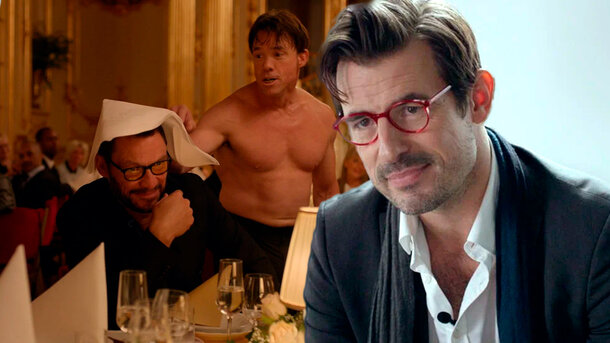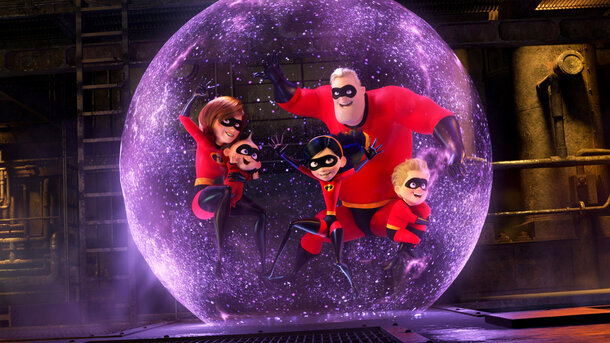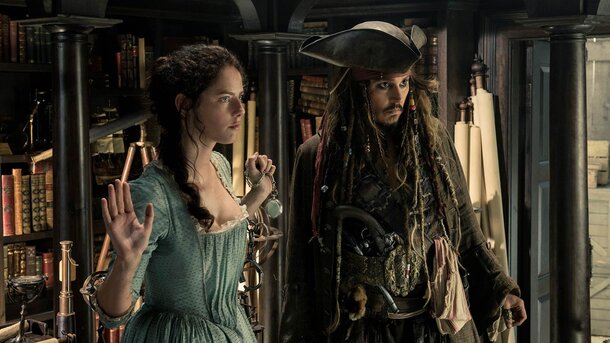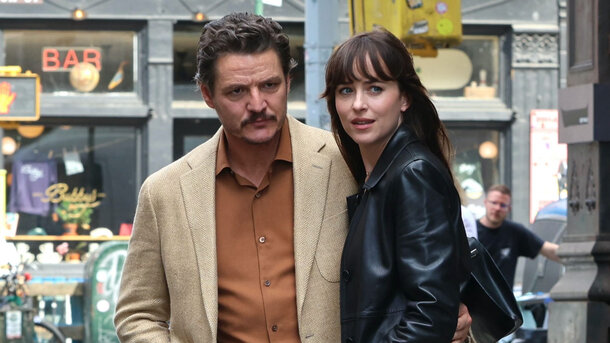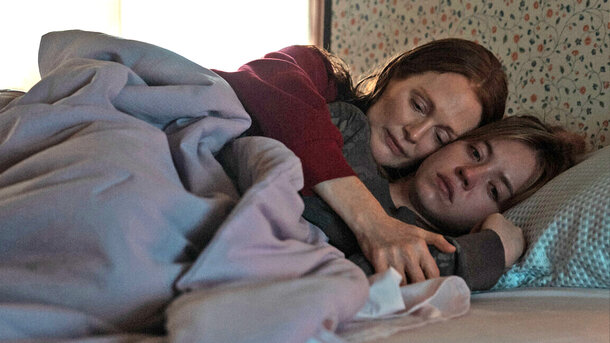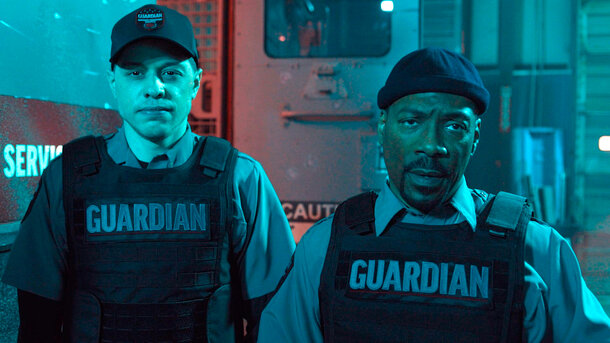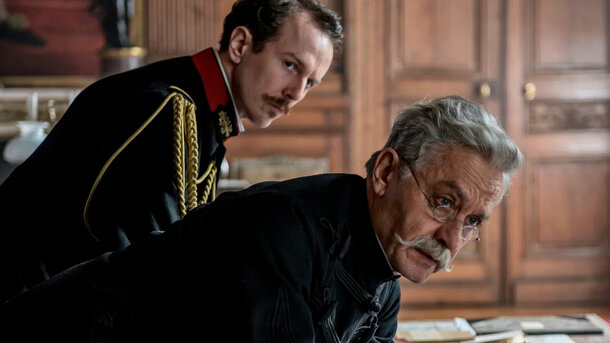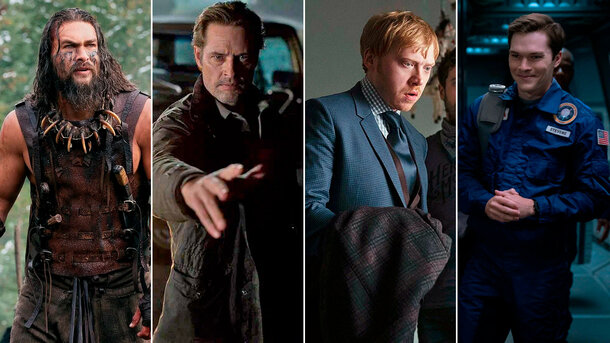What I got was something far more unnerving — a film that doesn’t just observe hypocrisy but forces us to experience it. Ruben Östlund’s 2017 Palme d’Or-winning satire is an exhilarating, darkly comedic, and deeply uncomfortable exploration of morality, privilege, and social chaos. From its absurd scenarios to its biting social commentary, this is a film that leaves you questioning your own place in the world.
Plot Overview: When Morality Becomes a Performance
Christian (Claes Bang) is a polished, well-respected curator at a prestigious Stockholm art museum. He oversees a new installation called The Square, a conceptual space meant to symbolize trust and altruism. But when his phone is stolen, Christian’s decision to track down the thief leads to a series of misguided actions that unravel his life and expose the contradictions between his progressive ideals and his actual behavior.
As his personal and professional life spiral into absurdity, The Square doesn’t just critique Christian — it examines the hypocrisy embedded in modern society. The film balances satire and psychological drama with moments of pure, nerve-wracking tension, particularly in the now-infamous gala scene featuring a performance artist (Terry Notary) taking his role as a violent primate far too seriously.
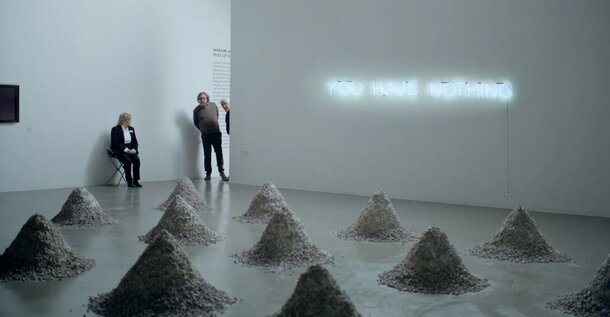
Direction and Style: Östlund’s Unrelenting Vision
Ruben Östlund is a master of discomfort, and here, he delivers his most piercing work. The film is constructed with clinical precision, each shot meticulously framed by cinematographer Fredrik Wenzel to capture the sterility of high culture and the chaos lurking beneath it. The pacing is deliberate, making every awkward silence, every micro-aggression, and every misstep linger long enough to feel painfully real.
Östlund doesn’t spoon-feed his audience. Instead, he crafts long, often excruciatingly tense sequences that force us to question our own instincts. Should we laugh? Cringe? Look away?
Performances: Claes Bang’s Brilliantly Fractured Leading Man
Claes Bang delivers a powerhouse performance as Christian, portraying him as both charming and deeply flawed. His slow descent from confident intellectual to frantic, self-destructive hypocrite is compelling to watch.
Elisabeth Moss (as Anne, a journalist who gets entangled with Christian) adds an unpredictable, off-kilter energy to the film, particularly in a hilariously uncomfortable post-hookup scene. Dominic West’s turn as an egotistical artist provides an extra layer of satire on the art world’s absurdities. And then there’s Terry Notary’s terrifying, unforgettable performance as the "human ape" in one of the most unhinged sequences ever put on film.
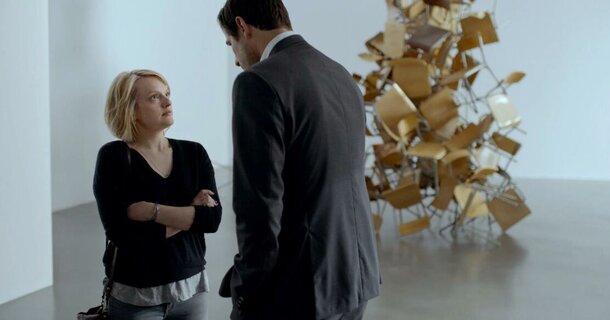
Cinematography and Sound: A World of Contradictions
The film’s visual aesthetic is strikingly cold and controlled, which contrasts beautifully with the messiness of human behavior. The cinematography reinforces the idea that the art world is about appearance and curation, while real life is anything but.
Sound design is also crucial here. The film plays with silence and noise, using the sterile quiet of museums and galleries to heighten the impact of chaotic moments, such as Christian’s frantic moral downfall or the haunting echoes of The Square’s promotional campaign gone wrong.
Themes and Symbolism: Who Are We When No One’s Watching?
At its core, The Square is about the disconnect between ideals and actions. Christian’s unraveling mirrors society’s broader struggle with performative morality — how people signal virtue in public but fail in private moments of crisis. The film explores power dynamics, privilege, and the thin veneer of civility that separates order from anarchy.
The Square installation itself is the perfect metaphor: a defined space where people are supposed to behave with trust and kindness, yet outside its borders, reality tells a very different story.
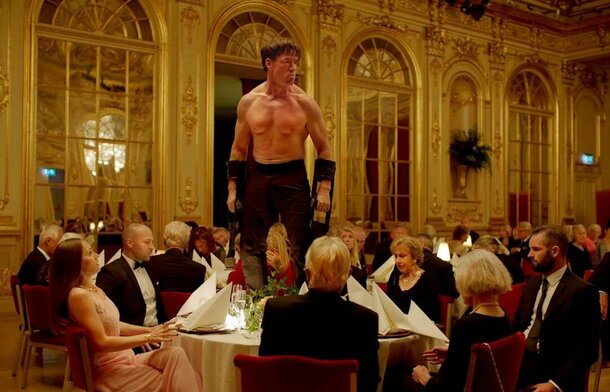
Audience Reactions: USA vs. UK
Audience reception of The Square was fascinatingly different between the USA and the UK.
In the USA, viewers were divided. Some hailed it as a masterpiece of modern satire, while others found it pretentious and too drawn-out. American audiences, accustomed to more traditional story arcs, struggled with the film’s open-ended narrative and deliberately slow pacing. The infamous "monkey performance" scene, in particular, shocked and polarized audiences, with some appreciating its boldness and others finding it gratuitous.
In the UK, the response was slightly warmer, particularly among cinephiles and fans of European cinema. The film’s dry, awkward humor resonated more with British sensibilities, and its critique of social hypocrisy found an appreciative audience. However, some viewers still found the film frustratingly ambiguous, with a few calling it "brilliantly unsettling" while others dismissed it as "artistic navel-gazing."
Awards and Financials: A Festival Darling
The Square was a critical triumph, winning the Palme d’Or at the 2017 Cannes Film Festival. It also swept the European Film Awards, taking home Best Film, Best Director, and Best Actor (Claes Bang). Additionally, it received an Oscar nomination for Best Foreign Language Film.
On a budget of $5.5 million, the film grossed $9.5 million worldwide, a strong performance for an independent European film.
Final Verdict: A Must-See, But Not for Everyone
If you love films that challenge societal norms and make you squirm in your seat, The Square is essential viewing. It’s a razor-sharp, brilliantly executed satire that forces you to confront your own moral contradictions. However, if you prefer clear resolutions and fast-paced storytelling, this might test your patience.
IMDb Rating: 7.2/10
